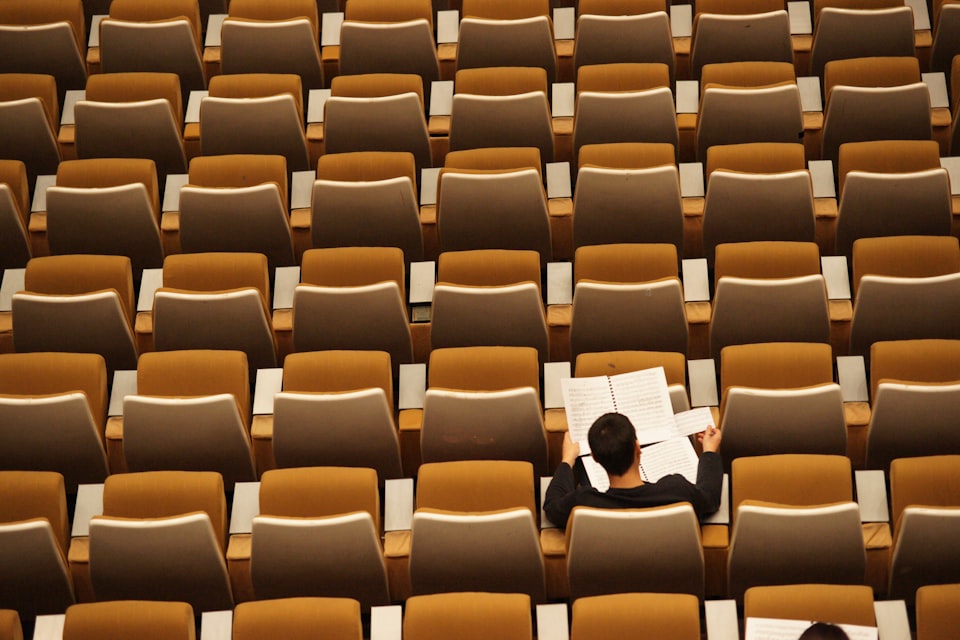I was born and raised in India. I have been living in the USA for almost 8 years now. These are the only two countries I have ever lived in. I took a vacation to India recently, and while returning, my flight took a long route towards the north from Doha, going all the way up through Europe, Greenland, the Arctic region, Canada, and entered the USA from the north. During the 16-hour-long journey, I kept switching the in-flight display screen to monitor the route we are flying on. I'm usually curious about routes and I do this every time it's available on any mode of transport, no matter how long my journey is.
During my recent travel, I saw something on the screen from the corner of my eye while being half asleep. I woke up with a jolt, trying to refocus my eyes on the screen and I couldn't believe what I saw. My flight was flying towards the North Pole. For the next couple of hours, I found myself switching between the flight tracker and the window, hoping that the flight doesn't change its course and miss the North Pole. Finally, we flew over the North Pole and I couldn't take my eyes off the window. To be honest, there was nothing to see. It was all white and there were layers of silver clouds in some areas reflecting the sun right into my cornea. But the idea of flying over the North Pole was fascinating to me. It was not long before that the fascination turned into despair as if the silver clouds turned dark. The next flurry of thoughts I had for the rest of my journey, is this blog post.
Every time I've flown internationally (three round trips to be precise), I have been excited to fly over different countries and places. I used to take pictures of the different regions on the map and make a note like, "I'm flying over the Caspian Sea at an altitude of 36000 ft". This time, I made a note about the North Pole. The excitement didn't last long. I realized that the excitement comes from the lack of freedom and the thought was depressing. The reality is that I'm bound by so many things, both personal and social, that I'll probably never be able to visit or live in different places on the earth as I wish. I'm grateful for the life I live, but this is beyond just me.
When I think of the people of the world, it's almost impossible for most of us to just choose a place and go live there. Unfortunately, the world functions in a way that we don't get to experience all of it as we wish. It's not easy for anyone to be born, grow up, and live in different regions of the world unless they are born into 1% of the families that are wealthy and privileged. Even they are bound by so many things like businesses, family, lineage, protecting their wealth, etc. There are so many other factors that are political, religious, cultural, socio-economic, familial, nationalistic, and health-related.
The only natural reason is the set of health-related repercussions of living in weather conditions that one isn't used to, which could potentially be managed too. All other reasons are artificial. Isn't it unfortunate? Shouldn't the system be set up in a way that anybody who wishes to live in a different place for some time should freely be able to move and live there for as long as they wish? Isn't that true freedom? It's a dream at this point.
When I was thinking about it, the whole concept of visas seemed absurd to me on some level. It's essentially countries saying to the people that they don't have the right to live wherever they want unless they have a financial reason. Sure, every country needs to run its economy, but the restrictions around this concept are problematic. Anybody who has tried to move out of their home country would have faced the wrath of visas, especially from the developing and under-developed countries. The fact that passports of certain countries are more "powerful" than the others sounds ridiculous to me. Check this article out to see what I mean. The world mostly has stagnated population, for reasons like these.
The world is divided and united by many things. The same elements that sometimes unite us, divide us — Countries, Cultures, Religions, Languages, etc. On the flip side, the elements that sometimes divide us, unite us — Music, Art, Science, Technology, etc. Apart from all these, there's the biggest factor – yes, you got that right, Money. Wealth disparity is the biggest threat to people moving freely in the world. According to the UN, 9.5% of the world population (roughly 689 million people) live below the international poverty line making less than $1.9 a day. According to Our World in Data, 85% of the people live on less than $30 per day, and about two-thirds of the population live for less than $10 per day. Covid-19 has only made things worse and drove an additional 119-124 million people to extreme poverty in 2020. The UN aims to eradicate poverty by 2030, but due to Covid-19, we are going to miss that target and an estimate of 7% of the population will still be under the poverty line in 2030. The numbers are unfathomable.
I'm inclined to think that no amount of money or social development will solve poverty in sustainable ways. Universal Basic Income could potentially solve poverty but the idea is utopian and almost impractical. Economists and sociologists will know better, but in my layman's opinion, education is our best shot at eradicating poverty. If we can somehow educate everyone, or at least the children of today, we can think about a poverty-free generation in the future. So, we have bigger concerns to deal with, before we can even think about moving freely in the world.
In these times of despair, technology has given us some hope. Thanks to the internet, we have access to tons of information now more than ever, and we are progressing in all the little ways we can. Things of today, like decentralization, remote work, etc have started diluting the hubs of the world. We are moving towards a world where there is a possibility of not being stuck in a geographic location. People who can't afford to go to college might have the option of accessing the internet and learning from billions of free resources. It would be great if we could achieve 100% internet connectivity in the world. This is far-fetched too, but it seems possible in the direction we are heading.
If technology reaches the most remote corners of the world, we will be connected with everyone. Information will truly be the wealth we share. Decentralization has the potential to make the world even and blur the boundaries virtually and physically. There won't be technology hubs anymore. Instead, there will be shared responsibilities and we will all be accountable to one another – as individuals, as organizations, as countries, as regions, as humans. Immigration policies could be revised to open arms freely to everyone. People from different regions of the world could form neighborhoods, and exchange cultures, ideologies, knowledge, and much more. It makes me feel optimistic that this is already possible in today's world virtually and it's only going to get better. Let's start sharing what we learned, and seek to learn what others share. The world will become moving traffic, and we will finally be free. That's the hope!
Thanks for reading. I'd love to hear about something that you learned recently, I'm your student for the day. Reach out to me, and we can discuss. Peace out!



